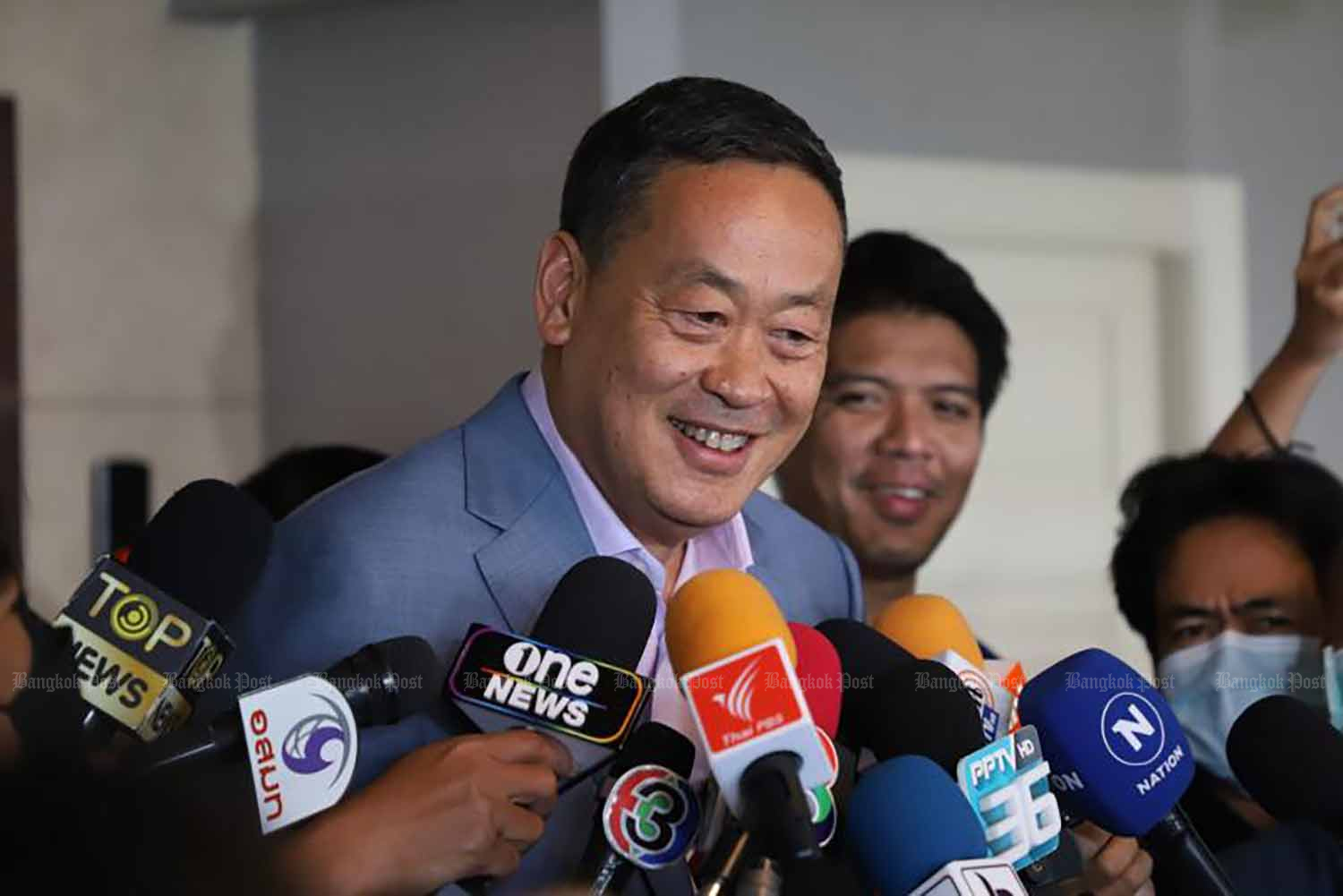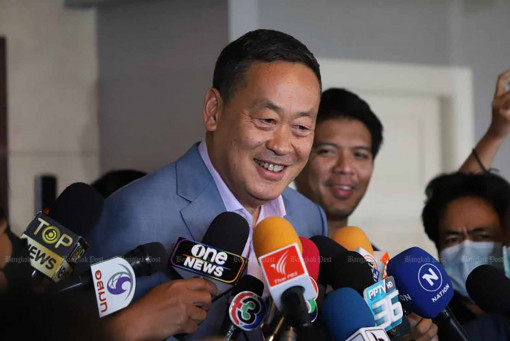Questions remain on support for Srettha

Questions remain over whether the country’s 30th prime minister can be elected on Tuesday as the political situation is still highly volatile, according to observers.
The Pheu Thai Party, which is in charge of forming a new government, now has the backing of the United Thai Nation (UTN) Party, which has agreed to join a Pheu Thai coalition and vote for its prime ministerial candidate Srettha Thavisin.
A group of 40 MPs from the Palang Pracharath Party (PPRP) earlier also promised to vote for Pheu Thai’s PM candidate, even though the PPPR has not yet announced a formal decision.
However, it is still not clear whether Mr Srettha will receive backing from the 250 senators because some senators have questioned his qualifications following claims made by whistleblower Chuvit Kamolvisit about alleged irregularities at property developer Sansiri while Mr Srettha served as its chief executive.
Some senators have also voiced opposition to Pheu Thai’s push for a new constitution after the new government takes office.
Under the current constitution, a PM candidate needs the support of at least half of the 750 members of both the lower and upper chambers of parliament or 376 votes in total.
Yutthaporn Issarachai, a political science lecturer at Sukhothai Thammathirat Open University, said that Mr Srettha is expected to receive backing from the UTN and the PPRP during the PM vote on Tuesday.
But it remains to be seen whether the senators will also vote for him, Mr Yutthaporn said.
“There are several factors, particu- larly the allegations made by Mr Chuvit,” he said. “These will put pressure on Pheu Thai. Its PM candidate will only have one chance during the vote.”
He cited a precedent set by parliament when it rejected a bid to renominate Move Forward Party leader Pita Limjaroenrat at a joint sitting on July 19, with opponents citing a parliamentary regulation. They argued that renomination violated parliamentary regulation 41, which prohibits resubmitting a failed motion during the same parliamentary session.
Mr Yutthaporn added that currently, there are four PM candidates from three parties who are likely to be nominated for PM; namely, Mr Srettha and Paetongtarn Shinawatra from Pheu Thai; Gen Prawit Wongsuwon of the PPRP and Anutin Charnvirakul of the Bhumjaithai Party.
If Mr Srettha is not elected during the vote, it is still not clear whether Pheu Thai will nominate Ms Paetongtarn.
“If she is not nominated, the post of prime minister may be taken by those from the old power group,” Mr Yutthaporn said.
“Eventually, Pheu Thai may have to accept conditions from other coalition allies bargaining for cabinet posts,” he said, adding Pheu Thai may also be forced to nominate Gen Prawit for prime minister.
Lt Gen Nanthadet Meksawat, former chief of the special operations centre at the National Security Centre, posted on Facebook that he believed Mr Srettha is unlikely to win endorsement from parliament on Tuesday following the move by Mr Chuvit.
Sen Jadet Insawang previously said several senators have questioned Mr Srettha’s suitability after Mr Chuvit made allegations against him.
Speaking on Facebook Live, Jatuporn Prompan, former chair of the red-shirt United Front for Democracy against Dictatorship, shared the view that Mr Srettha’s bid for prime minister would fail because the senators would not vote for him.
“Mr Srettha no longer has the backing of the people now Pheu Thai has joined hands with the two ‘uncle’ parties,” he said, referring to the UTN and the PPRP.
Meanwhile, Mr Srettha will not be asked to outline his vision as a PM candidate ahead of a parliamentary vote on Tuesday, according to parliament president Wan Muhamad Noor Matha.
The matter was agreed upon by whips from the Senate and representatives of political parties who met with Mr Wan on Friday.
Mr Srettha did not seek office in the May 14 election as a constituency or party-list MP. There are no rules specifically barring a non-MP from addressing a parliamentary meeting, Mr Wan said.
However, those at Friday’s meeting did not believe it was necessary for anyone nominated for prime minister to give a vision statement because the constitution and parliamentary regulations did not stipulate any such requirement, Mr Wan added.

